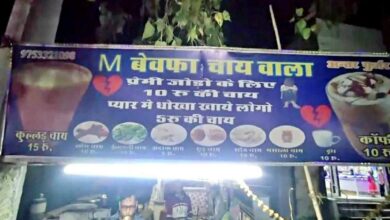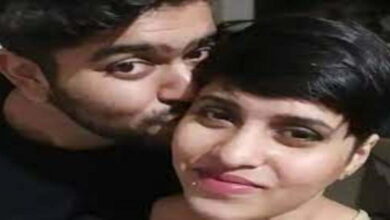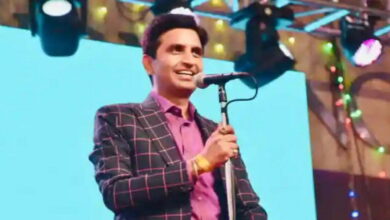It is necessary to reform the Election Commission itself

No one can deny that the country needs major electoral reforms. Therefore, the proposals sent by the Election Commission to the Central Government should be welcomed. The commission has pointed out the need for several important reforms. Like the suggestion of one person contesting from one seat is very good. Sometimes politicians contest more than one seat because of the risk of losing elections and sometimes for political messaging. After winning from both the seats, one seat is vacant, on which by-election is to be held. Thus by-elections have many disadvantages. The cost of conducting elections is its own, but there is uncertainty in the respective assembly or Lok Sabha seat for several months and elections are going on. The Election Commission has proposed that a leader should be barred from contesting from two seats or he should be fined heavily in case of by-elections.
Such a proposal has come before. When this proposal came in 2004, it was proposed to impose a fine of five lakh rupees on the leader concerned in the event of a by-election. But imposing a fine or increasing the amount of fine is not a solution as it is not just a matter of expenditure. Big questions are associated with this. Why should a by-election be called for because of any leader’s own personal gain and loss? Why should the people of a particular area suffer the hardships it creates? There is also a question that is often raised that when the voter cannot vote in two places, then how can a leader fight from two places? Therefore a change in this rule is necessary. It was first changed in 1996. By that time a leader could contest from multiple seats. This was going on since independence, when Atal Bihari Vajpayee fought the first Lok Sabha election of his life from three seats. He fought from Mathura, Lucknow and Balrampur in 1957 and won from Balrampur. This rule was changed in 1996. According to the new rule, no leader can contest from more than two seats at the same time.
It is a very common practice for politicians to fight from two seats. In the last ie 2019 elections, Rahul Gandhi had contested from Amethi in Uttar Pradesh and Wayanad in Kerala. Prior to that i.e. in 2014, as a prime ministerial candidate, Narendra Modi had contested from Varanasi in Uttar Pradesh and Vadodara in Gujarat and won from both the seats. He later resigned from the Vadodara seat. Therefore, the Election Commission must make this reform, so that a leader is barred from contesting from two seats. But at the same time, attention should be paid to other reasons, which lead to by-elections. At present, by-elections are being held for two Lok Sabha seats in Uttar Pradesh and one in Punjab. Both the MPs from Uttar Pradesh resigned because they became MLAs and Bhagwant Mann, MP from Sangrur seat in Punjab, resigned because he has become the Chief Minister and has to contest the assembly elections. It is also a very common practice that MPs contest the assembly elections or MLAs contest the Lok Sabha elections. This also leads to by-elections.
However, the suggestion made by the Election Commission to stop the by-polls is good but it is only a small part of the necessary electoral reforms. The commission has to make several important reforms. Measures have to be taken to stop bogus voting and increase voting percentage. Measures have to be taken to prevent or reduce the number of candidates with tainted image from contesting elections. Violating the rules of election expenditure, the election expenditure of crores and crores of rupees is to be stopped in every election. To permanently stop attempts at communal polarization in elections through provocative speeches and divisive statements. To create level playing field i.e. level playing field for the candidates of favor and opposition. As far as possible, concrete initiatives have to be taken in the direction of holding simultaneous elections. There are many such electoral reforms, which are necessary and for which the Election Commission should initiate.
But before that it is more important that the Election Commission should be reformed. The Election Commission itself has said many times that it does not have any special powers. The commission has said this in the courts also. Due to less power, it is not able to stop the arbitrariness of the parties. It does not have the power to take any coercive action even in cases of violation of the code of conduct. The Election Commission also said recently that it does not have the right to derecognise parties. The question is, why should the commission have the right to derecognise parties or cancel the candidature of those who violate the code of conduct? If all the powers that the Commission has, they are also used neutrally and impartially, then the disturbances can be effectively checked. After all, when TN Seshan became the Election Commissioner, the commission had even less powers. But Seshan used that limited authority to effectively put a stop to incidents like bogus voting and booth capturing. By using his limited powers, Chief Election Commissioner JM Lyngdoh had brought about many reforms.
If the Election Commissioner so desires, he can effectively exercise the limited powers of the Election Commission. But for this it is necessary that they remain neutral and impartial. They take action in an objective manner. It cannot be that there should be a separate action in cases of violation of the code of conduct against the Prime Minister and in the case of allegations against the opposition leaders. Certainly the Election Commission should be given some more powers. But more important than that is that the commission should be made impartial. The Election Commission should function as an independent constitutional body and not as a department of the Central Government. Keep in mind that for the last few years, the Commission has been accused of fixing the election dates according to the ruling party, preparing the election schedule accordingly and not taking action on the complaints received against the leaders of the ruling party. During elections, the central agencies act on the opposition leaders and the commission remains a mute spectator. Therefore, before demanding the rights, there is a need to reform the Election Commission itself. If the commission changes itself and works in an objective manner, then many problems will be solved by that too.






